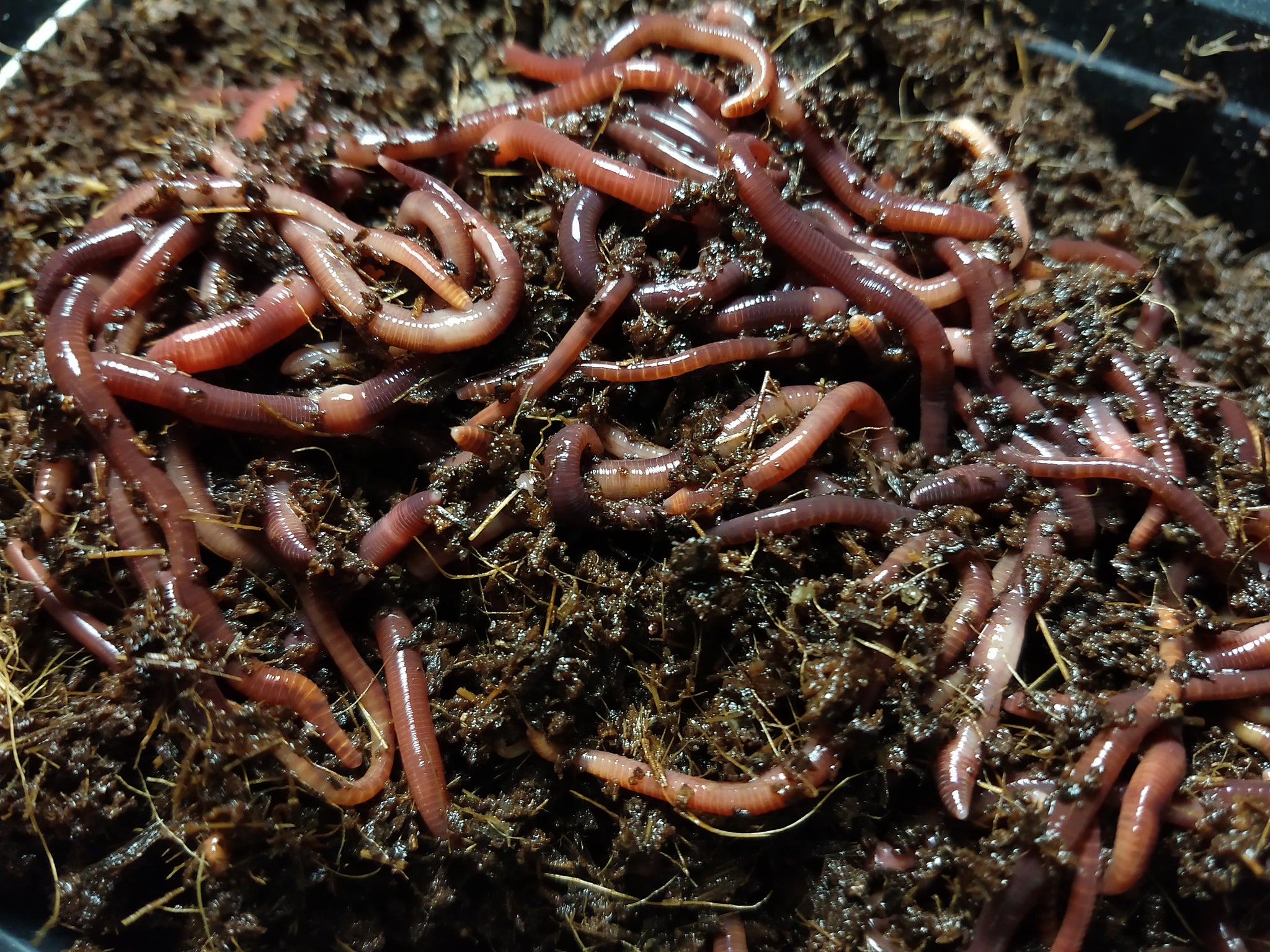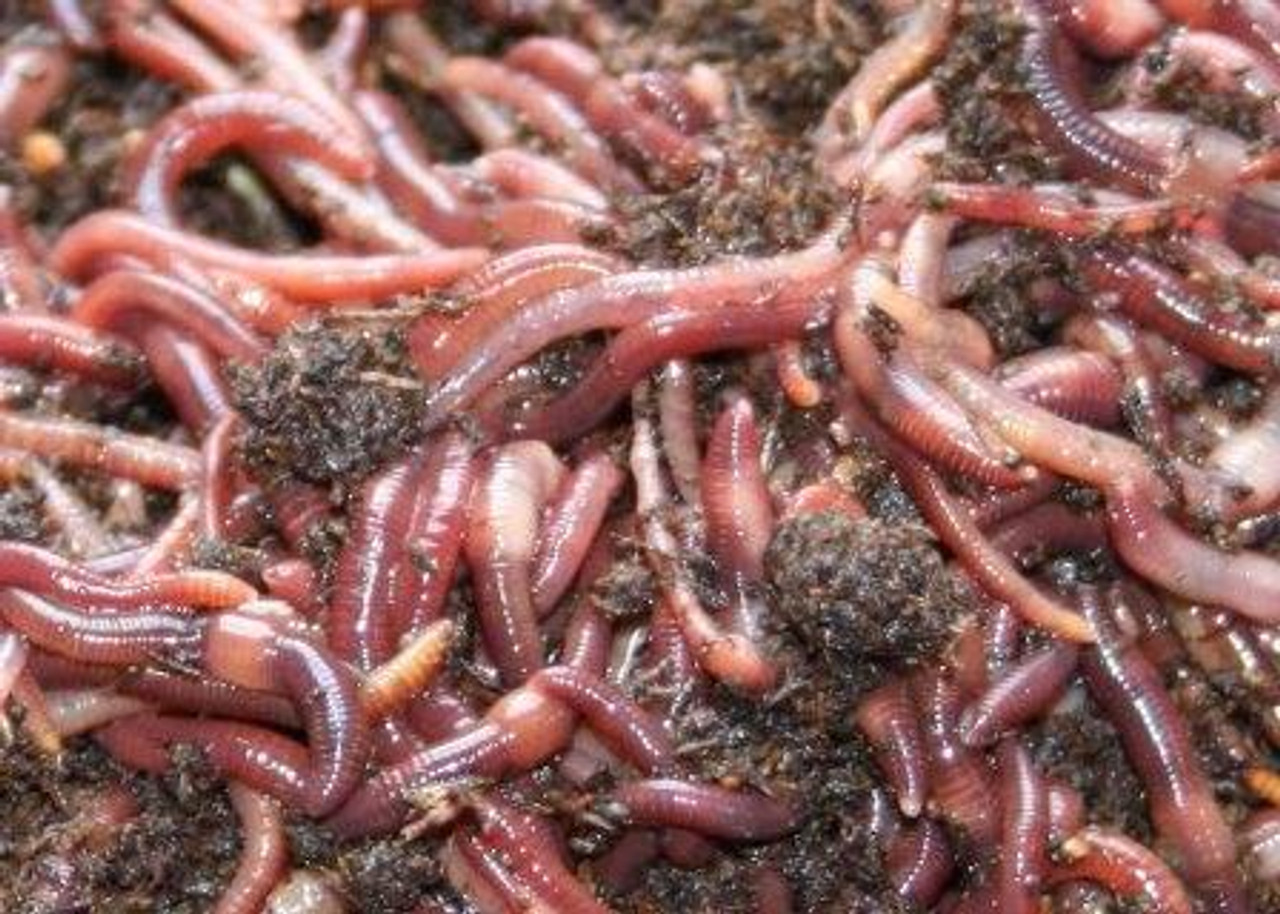Keep Your Lawn Green and Healthy with Expert Tips from Lake Hickory Bait
Keep Your Lawn Green and Healthy with Expert Tips from Lake Hickory Bait
Blog Article
Red Wigglers: The Unsung Heroes of Organic Waste Recycling
Red wigglers, or Eisenia fetida, act as critical agents in the natural waste recycling procedure, changing disposed of materials right into useful vermicompost. Their effective failure of natural matter not only boosts dirt quality but likewise contributes to lasting waste administration techniques. As the globe progressively looks for solutions to combat waste build-up and improve farming performance, comprehending the duty of these worms comes to be necessary. What systems enable them to flourish in garden compost settings, and exactly how can they be successfully used in both residential and business setups? Checking out these questions discloses the more comprehensive effects of vermicomposting in our eco-friendly landscape.
What Are Red Wigglers?
The impressive strength of red wigglers, scientifically called Eisenia fetida, emphasizes their essential role in organic waste recycling. These little, reddish-brown earthworms are commonly discovered in decaying organic matter, such as compost heaps and manure stacks. Lake Hickory Bait. Unlike various other earthworm types, red wigglers thrive in nutrient-rich settings and are extremely reliable at breaking down natural products, making them important for vermicomposting

(Lake Rhodhiss Bait)In addition to their function in waste decrease, red wigglers contribute to dirt health by improving soil framework and oygenation with their tunneling tasks (Lake Hickory Bait). Their presence in composting systems not only improves decomposition rates however likewise advertises a lasting technique to waste administration, showing their significance in ecological conservation efforts
Benefits of Composting With Worms
Composting with worms, especially red wigglers, supplies various advantages that improve both waste administration and soil health and wellness. First, these worms effectively damage down natural waste, converting it right into nutrient-rich vermicompost that enhances soil. This process speeds up decay, enabling a much faster recycling of cooking area scraps and various other natural products contrasted to standard composting techniques.
Furthermore, the vermicompost produced by red wigglers is including valuable microbes, which aid enhance soil framework, oygenation, and wetness retention. This enhances the overall health of plants, promoting vigorous development and boosted yields in yards and farming setups. The use of worms in composting lessens the production of greenhouse gases, such as methane, adding to a much more sustainable waste monitoring system.

Just How to Beginning Vermicomposting
Developing a vermicomposting system is a check simple procedure that can yield considerable advantages for both waste monitoring and dirt enrichment. To begin, select a suitable container, such as a plastic container or wooden box, with sufficient ventilation openings to guarantee proper airflow. The measurements must preferably be around 2 feet by 3 feet, enabling adequate area for the worms to thrive.
Following, prepare bed linens product, which can be composed of shredded paper, cardboard, or coconut coir. This bed linens should be moistened to create a suitable habitat for the worms. Once the bed linens is in place, introduce red wigglers (Eisenia fetida) right into the bin, typically around one pound of worms for every square foot of surface area.
Adhering to the positioning of worms, include natural waste, such as vegetables and fruit scraps, coffee grounds, and crushed eggshells. Avoid including milk, meat, or oils, as these can develop odors and attract bugs. Place the bin in a shaded, temperature-controlled area to keep ideal problems for worm activity. With these actions, you will effectively launch a vermicomposting system that adds to lasting waste management and enriches your dirt.
Maintaining a Healthy And Balanced Worm Bin
(Red Wiggler Express)Keeping a worm bin prospering requires normal interest and like make certain the health and wellness of the red wigglers and the efficiency of the composting procedure. Correct maintenance begins with checking the moisture degrees; the bin must perspire but not soaked. A good guideline is to maintain a consistency similar to a wrung-out sponge.
Gently mixing the bedding and food scraps every couple of weeks stops compaction and ensures that all worms have access to oxygen. Furthermore, it is vital to feed the worms appropriately.
If the container comes to be as well hot or cold, the worms may become worried. By faithfully managing these variables, one can preserve a robust and productive worm container.
Effect On Lasting Living
The effective maintenance of a worm bin not only profits the health and wellness of red wigglers however also contributes significantly to sustainable living methods. By recycling natural waste, such as cooking area scraps and lawn particles, red wigglers assist divert significant quantities of material from land fills. This decrease in waste not just reduces greenhouse gas emissions yet likewise minimizes the environmental worry connected with waste administration.
Moreover, the spreadings created by red wigglers act as a nutrient-rich natural plant food, enhancing dirt health and wellness and promoting plant development. This natural choice to chemical fertilizers sustains sustainable farming and gardening techniques, decreasing dependence on synthetic inputs that can harm ecosystems. Furthermore, worm composting fosters understanding of waste management, motivating people and areas to adopt even more lasting routines.

Final Thought
In recap, red wigglers offer as important factors to natural waste reusing via their efficient decomposition of natural products. Their capability to produce nutrient-rich vermicompost enhances soil health and wellness and supports sustainable farming techniques. By incorporating vermicomposting right into waste monitoring techniques, individuals and communities can substantially minimize waste while promoting ecological sustainability. The duty of Eisenia fetida in promoting healthy environments highlights the value of these microorganisms in attaining lasting living and improving soil fertility.
Report this page